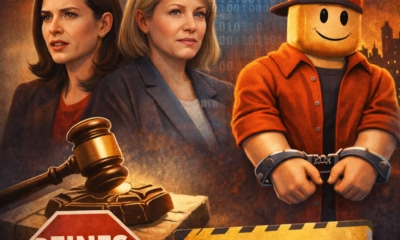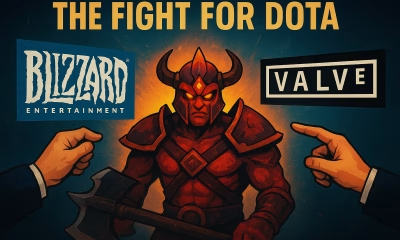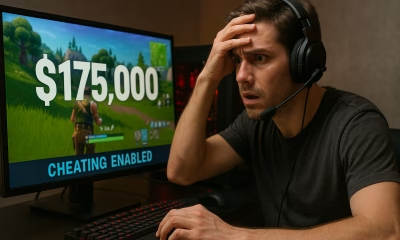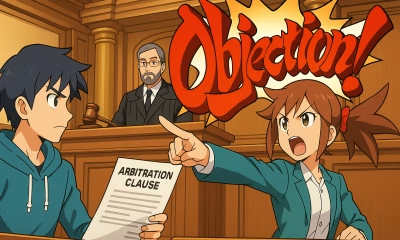Gambling
Another Roblox Litigation – An Illegal Gambling Ring for Kids?
In an era where digital platforms intertwine with daily activities, the lawsuit against Roblox Corporation has sparked significant legal and ethical debates. This case, officially cited as Colvin et al v. Roblox Corporation et al, No. 3:23-cv-04146, filed in the Northern District of California, brings to the fore critical issues surrounding gambling in video games and the responsibilities of platform providers.

Table of Contents
Case Background of the Roblox Litigation
Roblox, a platform that combines gaming with social networking, has been accused of facilitating illegal gambling activities targeted at minors through its virtual currency, Robux. Plaintiffs Rachelle Colvin and Danielle Sass allege that Roblox’s system enabled minors to engage in gambling via third-party sites that were intricately linked to the Roblox platform, thus breaching the Racketeer Influenced and Corrupt Organizations Act (RICO) and other pertinent statutes. This is just one of many cases against Roblox.
Specific Allegations Against Roblox
- Misleading Representations: Roblox’s terms of service claim that it does not allow activities involving simulated gambling using Robux. However, the lawsuit asserts that Roblox has misled consumers, particularly parents, about the safety and appropriateness of its platform for children.
- Facilitation of Gambling: Despite these terms, Roblox is accused of actively facilitating and profiting from gambling activities by tracking and recording the flow of Robux used for gambling on third-party sites, thereby enabling this ecosystem.
- Profit from Illegal Activities: It is alleged that Roblox profits significantly from these transactions by charging a transaction fee, including when Robux are converted back into real currency by these gambling entities, effectively receiving a cut from the illegal use of its platform.
Claims Made in the Roblox Litigation
The lawsuit brings multiple claims under both federal and state laws, including violations of the RICO, the California Unfair Competition Act (UCL)1, and for negligence, among others. These claims focus on the creation and maintenance of an illegal gambling operation, misleading business practices, and the unjust enrichment of Roblox at the expense of its users.
Relief Sought
The plaintiffs seek monetary damages, restitution for the losses incurred by the minor users and their guardians, and injunctive relief to prevent further illegal gambling operations. They also demand a jury trial to adjudicate these claims.
The Motion to Dismiss
On 26 and 28 March 2024, the court partially granted Roblox’s motion to dismiss. The court dismissed the RICO claims which was significant. The court held that the plaintiffs failed to demonstrate that Roblox was engaged in a “qualifying enterprise” under RICO, as they could not show a common purpose or concerted action beyond regular business operations. The court’s findings demonstrate a challenge plaintiffs usually face when applying traditional legal frameworks like RICO to the fluid, expansive, and often nebulous operations of digital platforms, which are designed to maximize user engagement and revenue through complex, layered interactions that may not neatly fit into existing legal categories.
Claims Advancement
However, the advancement of claims under the UCL and for negligence opens substantial grounds for legal debate and analysis. The UCL’s broad scope, aimed at combating unlawful, unfair, or fraudulent business acts or practices, provides a robust framework for addressing alleged misconduct in digital settings. The court’s decision to let these claims proceed suggests a recognition of potential oversight and management failures by Roblox in preventing the use of its platform for gambling activities, especially those involving minors.
The negligence claims hinge on whether Roblox failed to exercise reasonable care to avoid foreseeable harm to its users, particularly children, who might be drawn into gambling with real-world economic consequences.
Unjust Enrichment
The court also allowed the unjust enrichment claim to proceed. By allowing this claim to proceed, the judge recognized that the compensation sought by the plaintiffs might not be covered fully by direct monetary damages. This decision emphasizes the need to consider a broader economic context of transactions on platforms like Roblox, where the company’s revenue model directly benefits from the engagement and expenditures of its users, including those activities that skirt or cross legal boundaries.
Implications for Digital Currency and Platform Liability
This litigation spotlights the need for stricter regulatory scrutiny of digital currencies like Robux or gambling aspects in video games in general. As these currencies blur the lines between virtual assets and real-world value, the potential for misuse increases, necessitating clearer regulations and standards. This case could prompt lawmakers and regulators to examine more closely how digital currencies are managed on platforms, especially those accessible to minors.
The case also raises critical questions about the duty of platforms to protect users from harm. The allegations suggest that Roblox could and should have done more to prevent its platform from being used for gambling.
Conclusion
Colvin et al v. Roblox Corporation et al is an interesting case at the intersection of technology, law, and ethics, offering a crucial legal precedent for digital platform governance. As the case progresses, it will provide valuable insights into how digital platforms can be held accountable for the activities they enable and profit from.
This case will likely have far-reaching implications for legal practices, platform operations, and the legislative landscape governing digital interactions and economies, making it a critical watchpoint for legal professionals and platform operators alike.
Colvin et al v. Roblox Corporation et al
Court: United States District Court, Northern District of California
Case No.: 3:23-cv-04146
Defendant Roblox Corporation
- Counsel to Roblox Corporation: Cooley LLP
- Kyle Wong
- Robby Lee Ray Saldana, Washington, DC
- Tiana A. Demas, Chicago, IL
Defendant RBLXWild Entertainment LLC
- Counsel not listed
Defendant Satozuki Limited B.V.
- Counsel not listed
Defendant Studs Entertainment Ltd.
- Counsel not listed
Plaintiffs Rachelle Colvin and Danielle Sass
- Counsel to Plaintiffs: Weitz & Luxenberg, P.C.
- Aaron Freedman, New York, NY
- Devin Lynn Bolton, Los Angeles, CA
- James J. Bilsborrow, New York, NY
Minor Plaintiffs G.D. and L.C.
- Represented by the same counsel as Rachelle Colvin and Danielle Sass.
- Cal. Bus. & Prof. Code § 17200 et seq. ↩︎

















